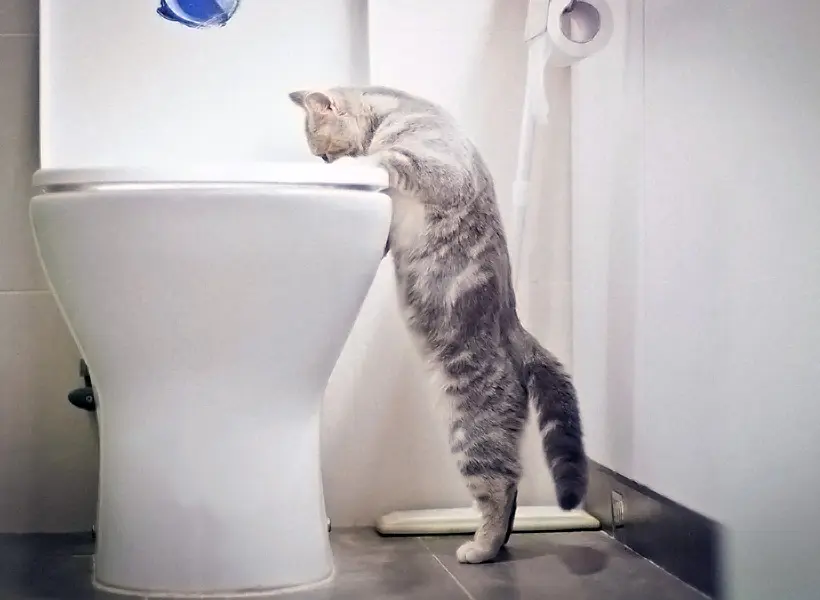Reasons Flushing Cat Poop Down Your Toilet Isn't a Good Idea - Tips for Safer Disposal
Reasons Flushing Cat Poop Down Your Toilet Isn't a Good Idea - Tips for Safer Disposal
Blog Article
On this page in the next paragraph you can locate more sensible material when it comes to How to Dispose of Cat Poop and Litter Without Plastic Bags.

Introduction
As cat proprietors, it's vital to bear in mind how we dispose of our feline good friends' waste. While it might appear hassle-free to flush pet cat poop down the commode, this technique can have destructive consequences for both the atmosphere and human health and wellness.
Environmental Impact
Flushing pet cat poop introduces dangerous virus and parasites right into the water, posturing a substantial danger to marine ecological communities. These pollutants can negatively influence marine life and compromise water quality.
Health and wellness Risks
Along with environmental concerns, flushing cat waste can likewise present wellness threats to humans. Cat feces might contain Toxoplasma gondii, a bloodsucker that can create toxoplasmosis-- a potentially severe disease, especially for pregnant females and individuals with weakened immune systems.
Alternatives to Flushing
Fortunately, there are much safer and more accountable means to dispose of feline poop. Think about the complying with choices:
1. Scoop and Dispose in Trash
One of the most usual technique of disposing of feline poop is to scoop it right into a naturally degradable bag and throw it in the trash. Make certain to utilize a dedicated litter scoop and throw away the waste immediately.
2. Use Biodegradable Litter
Select eco-friendly cat trash made from materials such as corn or wheat. These trashes are eco-friendly and can be safely gotten rid of in the trash.
3. Hide in the Yard
If you have a backyard, take into consideration hiding feline waste in a designated location away from vegetable gardens and water resources. Make sure to dig deep adequate to avoid contamination of groundwater.
4. Install a Pet Waste Disposal System
Buy a family pet waste disposal system particularly made for feline waste. These systems make use of enzymes to break down the waste, lowering odor and environmental impact.
Final thought
Responsible family pet ownership extends past offering food and sanctuary-- it also includes proper waste administration. By avoiding flushing feline poop down the bathroom and choosing alternate disposal approaches, we can lessen our environmental impact and shield human health.
Why You Should Never Flush Cat Poop Down the Toilet
A rose by any other name might smell as sweet, but not all poop is created equal. Toilets, and our sewage systems, are designed for human excrement, not animal waste. It might seem like it couldn’t hurt to toss cat feces into the loo, but it’s not a good idea to flush cat poop in the toilet.
First and foremost, assuming your cat uses a litter box, any waste is going to have litter on it. And even the smallest amount of litter can wreak havoc on plumbing.
Over time, small amounts build up, filling up your septic system. Most litter sold today is clumping; it is made from a type of clay that hardens when it gets wet. Ever tried to scrape old clumps from the bottom of a litter box? You know just how cement-hard it can get!
Now imagine just a small clump of that stuck in your pipes. A simple de-clogger like Drano isn’t going to cut it. And that means it’s going to cost you big time to fix it.
Parasitic Contamination
Believe it or not, your healthy kitty may be harboring a nasty parasite. Only cats excrete Toxoplasma in their feces. Yet it rarely causes serious health issues in the cats that are infected. Most people will be fine too if infected. Only pregnant women and people with compromised immune systems are at risk. (If you’ve ever heard how women who are expecting are excused from litter cleaning duty, Toxoplasma is why.)
But other animals may have a problem if infected with the parasite. And human water treatment systems aren’t designed to handle it. As a result, the systems don’t remove the parasite before discharging wastewater into local waterways. Fish, shellfish, and other marine life — otters in particular — are susceptible to toxoplasma. If exposed, most will end up with brain damage and many will die.
Depending on the species of fish, they may end up on someone’s fish hook and, ultimately on someone’s dinner plate. If that someone has a chronic illness, they’re at risk.
Skip the Toilet Training
We know there are folks out there who like to toilet train their cats. And we give them props, it takes a lot of work. But thanks to the toxoplasma, it’s not a good idea.

I discovered that blog post on Can You Flush Cat Poop Down The Toilet? when scouting around the internet. Don't hesitate to take the time to share this page if you enjoyed it. Bless you for your time. Don't forget to stop by our site back soon.
Get Your Estimate Now Report this page